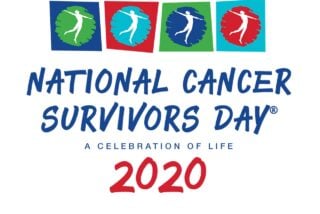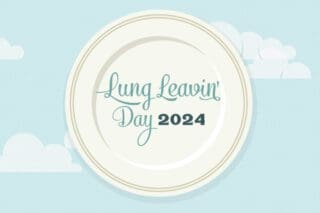
This year, June 7th is National Cancer Survivors Day. Since 1988, this observance has fallen on the first Sunday in June. National Cancer Survivors Day celebrates life, raises cancer awareness, acknowledges survivors and inspires current cancer patients.
“National Cancer Survivors Day (NCSD) gives these survivors – and those who support them – a special day each year to celebrate life and to show the world that you can have a good life after a cancer diagnosis,” said NCSD Foundation spokeswoman Laura Shipp in a press release. This year, we spoke with several cancer survivors to hear their stories, learn what it means to be a survivor and find out how we can all better support survivors.
The Upward Trend of Cancer Survival
According to the National Cancer Institute (NCI), there are about 16.9 million cancer survivors in the United States. The NCI estimates this figure will increase by 29.1% by 2029. As the number of cancer survivors increases, it is important to learn about how current survivors deal with their experiences.
When Alexa Cucchiara was diagnosed with Stage 2A Hodgkin’s Lymphoma, she was 19 years old and had just begun her junior year of college. For Alexa, it was difficult to find other young adult patients to connect with.
“I connected with a lot of survivors through Instagram,” said Alexa. “I joined Facebook groups geared toward my cancer or for young female cancer patients. It was hard for me to find young adults who were also going through the same experience as me.”
Mesothelioma survivor Heather Von St. James felt some of the same things after her diagnosis at 36 years old. The average age at diagnosis for mesothelioma patients is 65 to 74 years old.
“Some days it seems like my battle was a dream,” Heather told Mesothelioma.com. “And it doesn’t feel real. Then scan time shows up, or my body doesn’t work quite the way it should because I have one lung, and it all comes rushing back.”
Heather recently celebrated her 14th year of survival, despite an initial prognosis of 15 months. Alexa is nearly three years post-diagnosis.
The NCI data also shows as the number of people surviving cancer increases, so does the length of their survivorship. According to the agency, 67% of survivors live five or more years, and 45% live 10 or more years.
As cancer treatment and detection methods become more advanced, cancer survival rates are likely to continue to improve.
Reflecting on What It Means to Be a Cancer Survivor
For survivors, NCSD can be a way to reflect on their unique cancer journey. The day gives these survivors a place to share their stories, advise others and be heard.
Heather’s survival journey, like many others, meant coming to terms with all of the changes in her life post-cancer. “After treatment is over, we are just told to go live our lives, which is great and all, but what if the life you had before cancer is no longer there?” she said.
“In my case, I had to sell my business and figure out what to do now,” Heather continued. “I felt abandoned, lost and useless. Doctors are great at treating the disease, but not the patient after they survive. I had to find a purpose and make peace with my body and mind. I had to get therapy to understand that what I was feeling was normal and I wasn’t crazy.”
In the years since her diagnosis, Heather has become a cancer coach and stays actively involved in the mesothelioma community.
However, every survivor has a different way of coping with survival and viewing survivorship.
For Dan Sweiger, recovering from prostate cancer put everything into perspective. “Time is precious, so accept that cancer treatment is your new normal. Take stock of what really matters in your life, and focus your time and energy on that,” Dan told Mesothelioma.com.
“For me, that is my wife and daughters – maximizing quality time with them and not wasting a single minute on complaining or self-pity. Similarly, cancer made me reevaluate my career. I left my high-paying corporate job to start a new home healthcare business with my wife. My work is more fulfilling, and I’m able to spend far more quality time with my whole family,” Dan finished.
While cancer shaped Heather’s and Dan’s careers, it contributed to Alexa’s sense of self and understanding of strength.
“Survivorship is a test of resilience,” she said. “I never understood when people told me that I was going to come out stronger, but now on the other side, I feel like I can do anything.”
Advice for Cancer Patients From Survivors
Both cancer patients and the larger public can learn from survivors and their experiences. Many of the survivors we spoke to wanted to emphasize how current patients can cope with their diagnosis and treatment.
“Although this will not be easy, have faith,” Alexa said. “Your resilience and grit will be tested and you will look at the world in such a different way. Stay positive and keep your head up. Trust the battle. Trust the struggle. Trust yourself. Trust it, and know you can create your own strength. You have the power to persevere.”
Prostate cancer survivor Alan Guinn also encourages patients to take control of their cancer treatment.
“Getting a diagnosis of cancer does not necessarily mean a death sentence,” Alan said. “New treatments and new drugs are being developed every day. Have faith in the doctor treating you. If you don’t feel good about him or her, ask for another doctor. Don’t be afraid to speak up, ask questions, share opinions.”
Guinn’s final piece of advice isn’t just for patients or fellow survivors. It’s for everyone. “If I could pass on some advice from experience,” he said, “Go have your annual physical.”
To learn more about National Cancer Survivors Day and get involved, visit their website.




